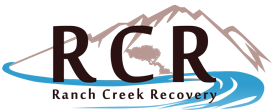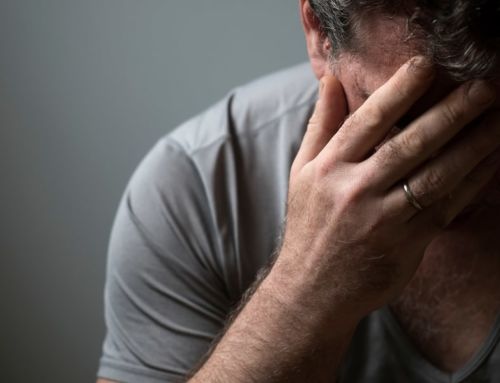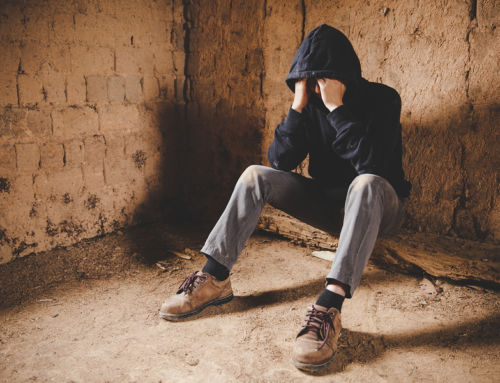Quicksand looks rather normal at first glance. You may not even see the threat in front of you until you step into its dangerous grip, and once you do, it’s nearly impossible to break free. You can try and try, but it’s as if the harder you struggle, the deeper you sink into the trap – descending farther and farther until you are entirely consumed.
Living with a heroin use disorder is eerily similar to this feeling. It’s a substance that may seem controllable at first, but it can become a suffocating addiction before you realize what’s happening. It’s important to understand just how addictive heroin is so and the risk it poses to your health.
Is Heroin Addictive?
Heroin is an extremely addictive substance that takes root in your physical body, digging its hooks deep into your being the longer you use it. This substance is so addictive because of the way it directly affects your brain functionality.
- The repetitive manner in which many people use heroin makes brain adaptations occur more quickly.
- The low cost and easy availability of heroin does little to discourage people from seeking it out.
- Heroin’s destructive withdrawal symptoms often prevent people from quitting successfully on their own.
How Quickly Can You Become Addicted to Heroin?
On average, it can take a couple weeks to become physically dependent on an opioid like heroin. Of course, this time frame can vary depending on the individual. For example, some studies show even the first dose of an opioid can have physiological effects, opening up neurological patterns that set the stage for severe addiction.
That’s because if a person begins using heroin on a consistent basis, their brain stops naturally producing dopamine like it did before their heroin use. This results in the need to take larger and more frequent amounts of the substance to achieve the same feeling of euphoria, leaving you constantly chasing that high you first experienced.
How Addictive is Heroin?
Unfortunately, heroin use has significantly increased across the United States among men and women of all age groups and income levels. Some of the largest increases has occurred in demographic groups with historically low rates of heroin use, including people who are privately insured, women and people with higher incomes.
It’s also important to know that not only are people using heroin in larger numbers, but they are also using other substances in combination with heroin – including cocaine, alcohol and prescription pills. Nearly all people who use heroin also use at least one other drug, and the statistics regarding heroin use display this trend:
- Heroin-involved overdose deaths have increased by nearly five times since 2010, going from 3,036 to 14,996 by 2018.
- People often use heroin along with other drugs or alcohol, drastically increasing the risk of a potential overdose.
- When people decide to inject heroin, they are at risk of serious, long-term viral infections. These include HIV, Hepatitis C and Hepatitis B, as well as bacterial infections of the skin, bloodstream, and heart.
- The number of people using heroin is increasing in size at a much faster rate than any other drugs of abuse.
- People who abuse alcohol are twice as likely to use heroin, and people addicted to painkillers are 40 times more likely to use it.
- A staggering 25 percent of people who try heroin will actually become addicted to the substance at some point.
Heroin Addiction Can End for Good. You Are Stronger Than You Know
Sometimes, the only way to get out of quicksand is to grab onto something, or someone, offering a branch to help pull you free. While you may never find yourself stuck in actual quicksand, breaking free from a debilitating heroin addiction requires the assistance of someone qualified to guide you along the path.
From a medical detox to safely remove the drug from your system to residential treatment aimed at addressing your maladaptive behavioral patterns in a clinically sound environment, the journey toward sustained sobriety is no short trip. However, making the decision to begin that journey and address your substance use disorder is the greatest resolution you will ever make in your life.
Heroin Detox and Addiction Treatment at Ranch Creek Recovery
Regardless of where your heroin addiction has landed you, you can get your entire life back on track. Don’t let heroin claim your life or hurt those you love the most any longer. There is life-changing support and a sober future ahead of you.
At Ranch Creek Recovery, your precise recovery needs are our main priority; your successful recovery
and sober re-entry into society is our utmost mission. At our non-12 step rehab and holistic recovery center, our heroin abuse treatment program delivers all-encompassing methodologies of medical and physical treatment, psychology, holistic and experiential therapies and preparation to forge the drug-free future you desire.
Have questions? We’re here to help in any way we can. Contact us today.













